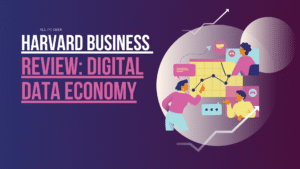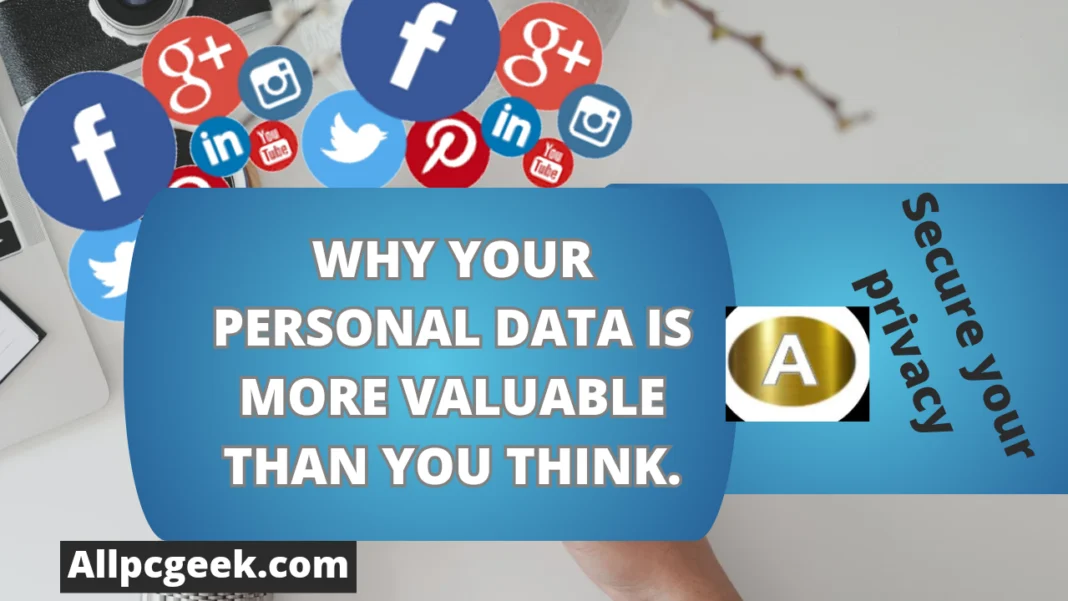But here’s the real shocker…
Your personal data is far more valuable than you think — not just to corporations, but to governments, marketers, big tech platforms, and even small businesses.
Your data fuels:
- Targeted advertising
- Social media algorithms
- AI recommendations
- Personalized shopping experiences
- Fraud detection systems
- Digital identity tools
- Predictive analytics
- Billion-dollar data marketplaces
This guide breaks down why your personal data matters, why companies want it, the risks, and how to protect yourself.
Table of Contents
- What Counts as Personal Data?
- Why Personal Data Is So Valuable
- How Companies Collect & Use Your Data
- The Risks You Should Worry About
- How to Protect Your Personal Data
- Key Takeaways
- FAQs
1. What Counts as Personal Data? (And Why You Should Care)
Personal data refers to any information that can identify you directly or indirectly. Some are obvious, some are shockingly subtle.
Examples of Personal Data Include:
- Basic info: name, email, phone number
- Demographics: age, gender, occupation
- Behavioral data: clicks, browsing history, app usage
- Location data: GPS, Wi-Fi connections, visited places
- Financial data: transactions, spending patterns
- Health data: fitness trackers, smartwatches
- Device data: IP address, device type, OS
Your online behavior paints a very accurate picture of who you are sometimes more accurately than you can describe yourself.
2. Why Personal Data Is So Valuable (The “New Oil” of the Digital Age)
Data fuels the global economy. It powers advertising, AI models, recommendations, and predictive systems that shape your daily decisions.
1. It Has Direct Monetary Value
Data brokers buy, store, refine, and sell user profiles to advertisers, insurance companies, and political campaigns. It’s a multi-billion dollar market.

Harvard Business Review: Digital Data Economy
2. It Powers Targeted Advertising
Ever searched for something and suddenly saw ads for it everywhere? That’s data-driven advertising — 10x more effective than general ads.
3. Companies Use It for Product Decisions
Netflix, Amazon, TikTok, and Spotify rely on user behavior to improve products, personalize feeds, and suggest content. Netflix saves $1B yearly using data-driven recommendations.
4. Predictive Analytics (Companies Predict Your Actions)
Companies can predict what you’ll buy, which app you’ll open, or what video you’ll watch next.
McKinsey Digital – Data & Analytics
5. Data = Competitive Advantage
Businesses that understand customer data grow faster, market smarter, and innovate quicker.
Related reading:
Top IT Skills That Are in High Demand in 2026
6. Data Is the Backbone of AI
AI systems require massive amounts of human and behavioral data to learn, improve, and make accurate predictions.
3. How Companies Collect & Use Your Data (The Part Nobody Reads)
Companies collect your data from everywhere — many times without you realizing it.
1. Websites (Cookies & Tracking Pixels)
- Clicks
- Time spent
- Heatmaps
- Location
- Shopping behavior
2. Mobile Apps
Apps collect even deeper data:
- Contacts
- Camera & microphone
- GPS
- Bluetooth
- Storage
- Background activity
3. Social Media Platforms
- Likes & reactions
- Scroll patterns
- Friends and followers
- Interests
- Active time
4. Data Brokers
Companies like Acxiom & Experian buy data from apps and stores and sell user profiles.
5. Governments
Through IDs, telecom registration, taxes, banking systems, and CCTV.
4. Risks & Implications (What You Should Worry About)
1. Privacy Loss
Companies know what you buy, where you go, who you talk to, and how you behave online.
“If you’re not paying for the product, you are the product.”
2. Data Breaches
Leaked data leads to identity theft, fraud, and account takeovers.
Statista – Data Breach Statistics
3. Manipulation & Behavioral Control
Data can influence elections, shopping habits, and personal decisions.
4. Surveillance
Governments and corporations use data to track behavior and monitor digital footprints.
5. Discrimination
Data profiling can lead to unfair loan denials, insurance pricing, or political targeting.
5. How to Protect Your Personal Data (Practical Tips)
- Use strong, unique passwords (never reuse them).
- Enable 2FA — even if it feels annoying.
- Review app permissions regularly.
- Avoid oversharing personal details on social media.
- Use privacy tools like DuckDuckGo, Brave, ProtonMail, and a VPN.
- Check for breached accounts using “Have I Been Pwned”.
- Adjust privacy settings on social platforms.
6. Key Takeaways
- Your personal data is extremely valuable in today’s digital economy.
- Companies use it to shape advertising, recommendations, and product decisions.
- Data misuse can lead to privacy loss, identity theft, and manipulation.
- You can protect yourself through simple digital hygiene practices.
7. FAQs
1. Why is personal data valuable?
Because companies use it to make money through advertising, AI, recommendations, and analytics.
2. Who collects my data?
Websites, apps, governments, social networks, data brokers.
3. What are the biggest risks?
Identity theft, privacy loss, manipulation, data breaches, surveillance.
4. Can I protect my data?
Yes — with strong passwords, 2FA, privacy tools, and cautious online behavior.
5. Should I delete old accounts?
Yes. Old accounts increase your exposure to data breaches.


